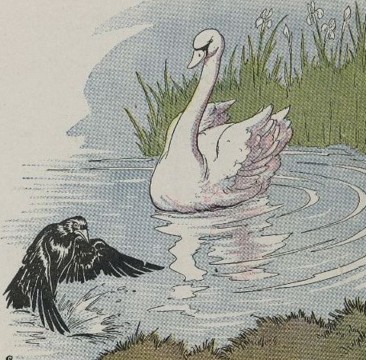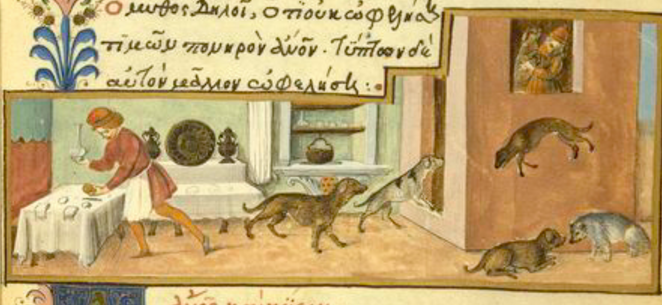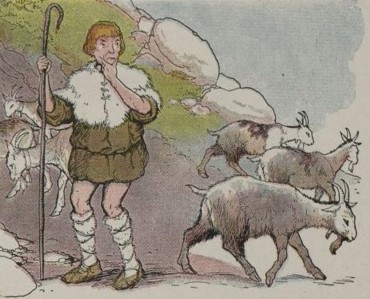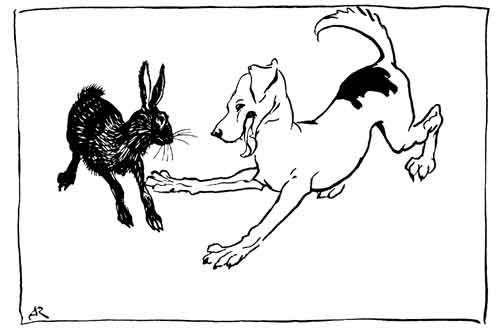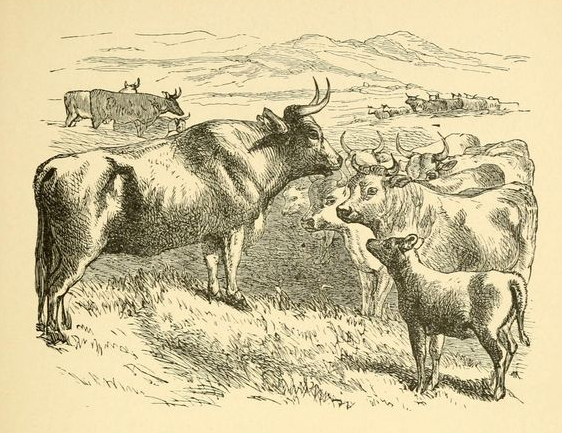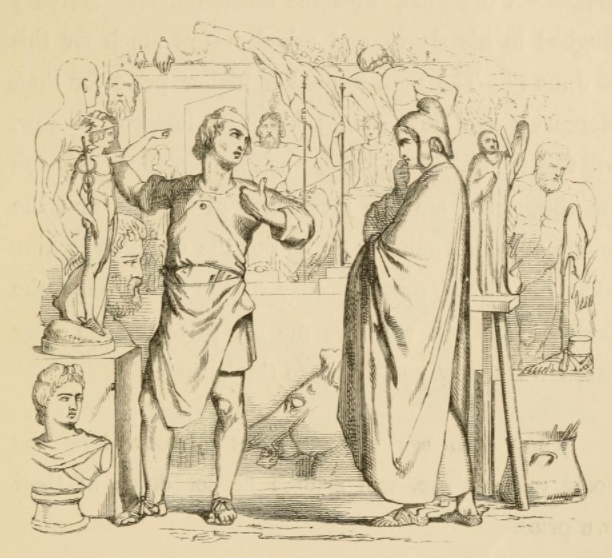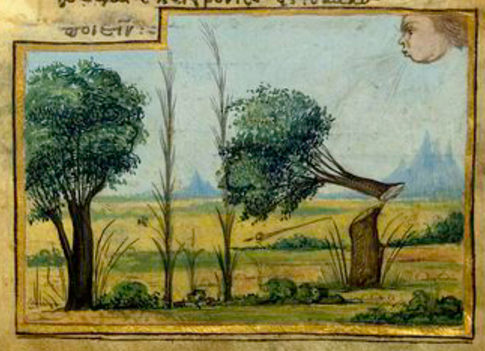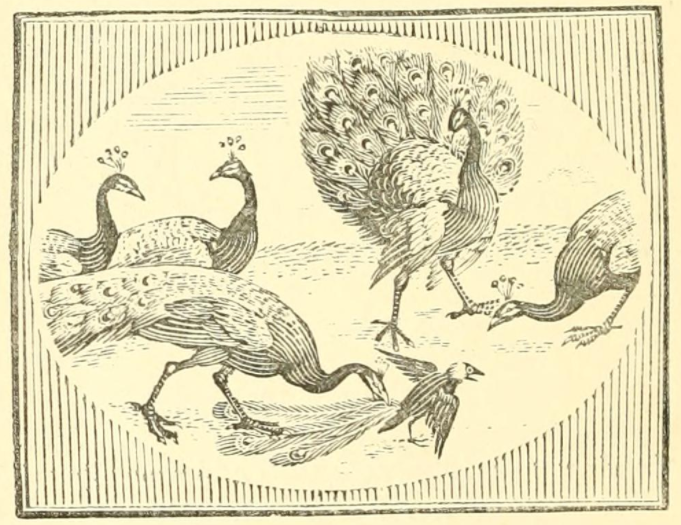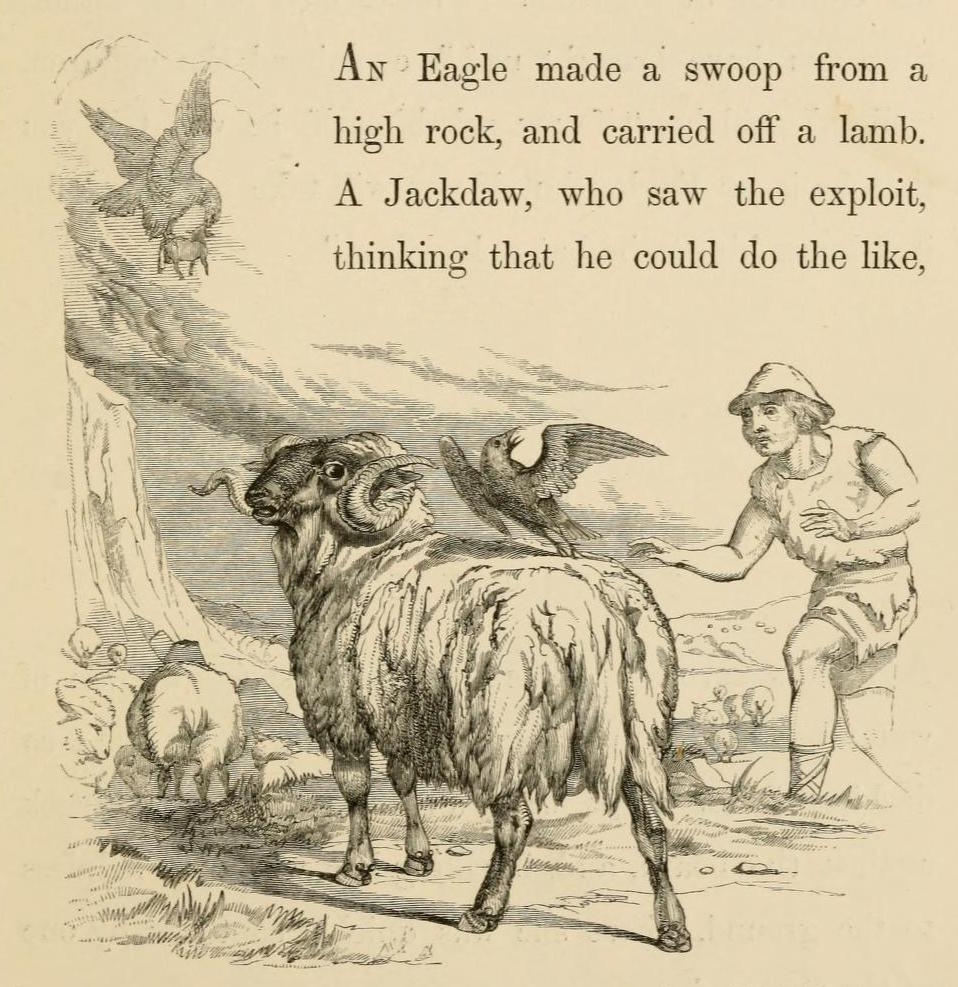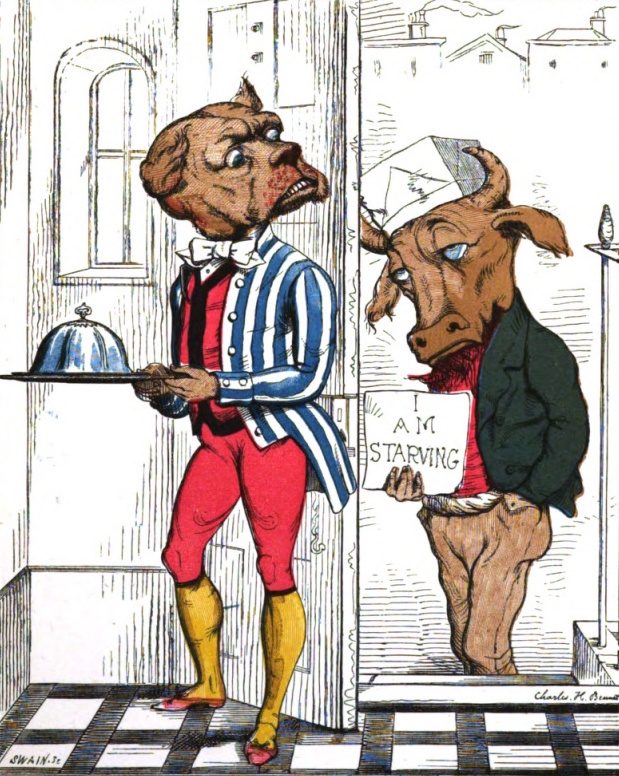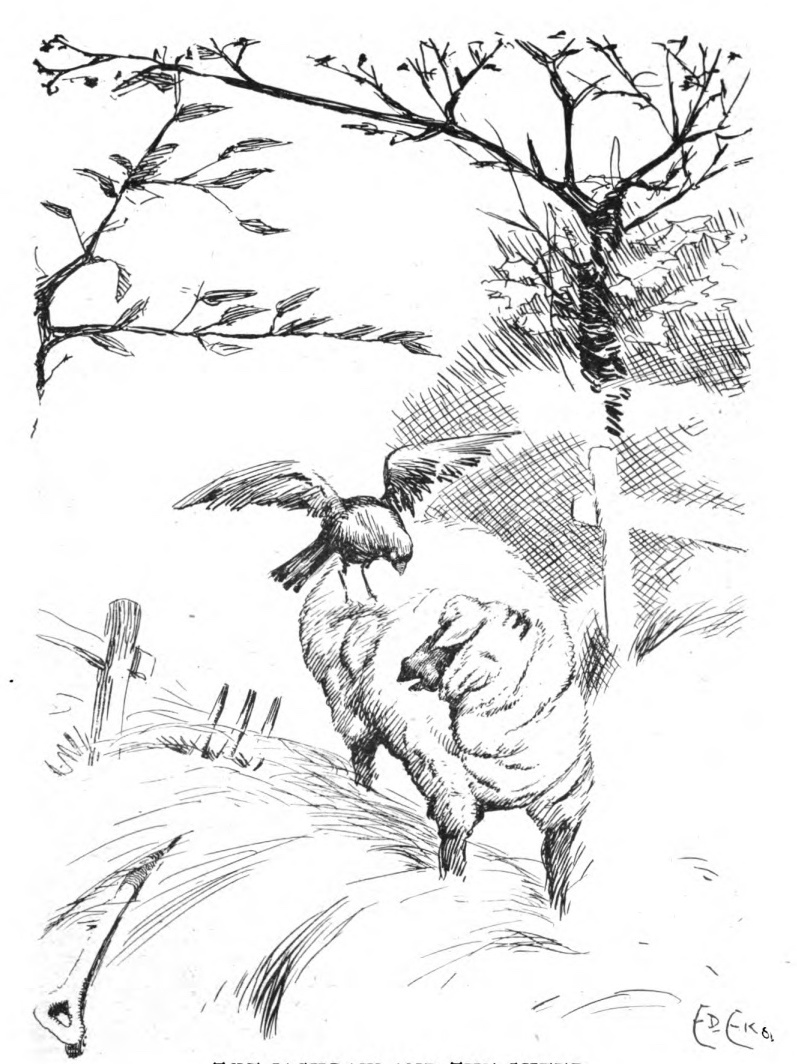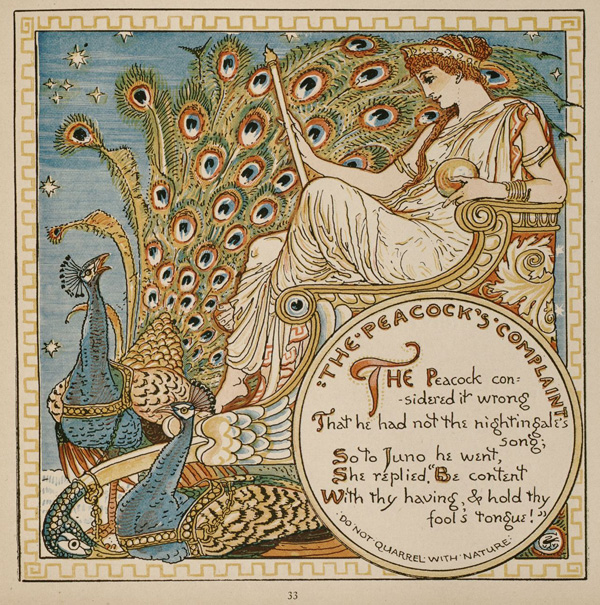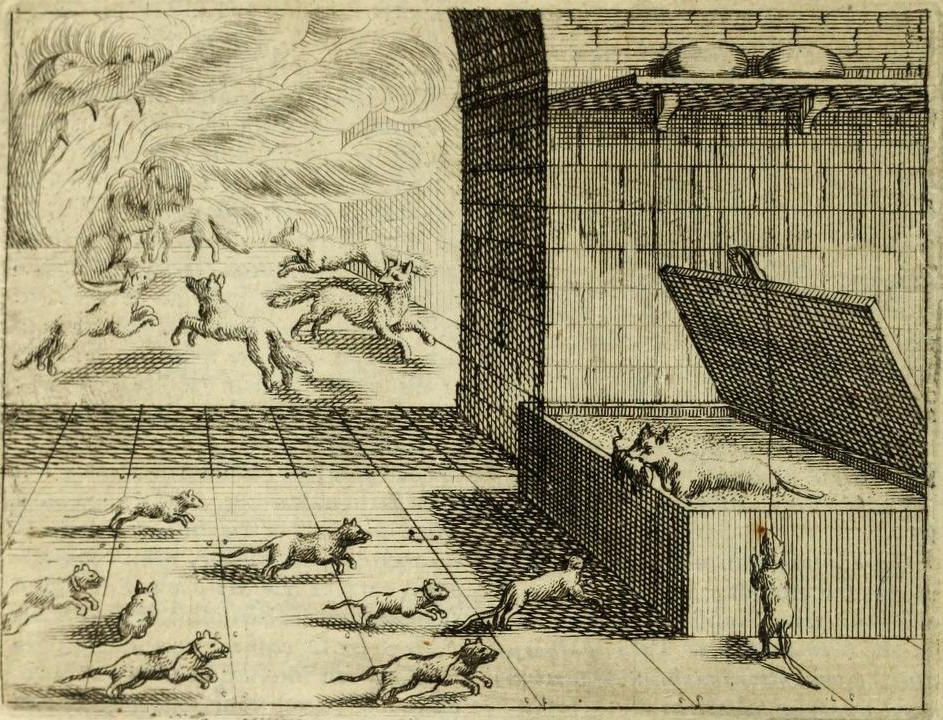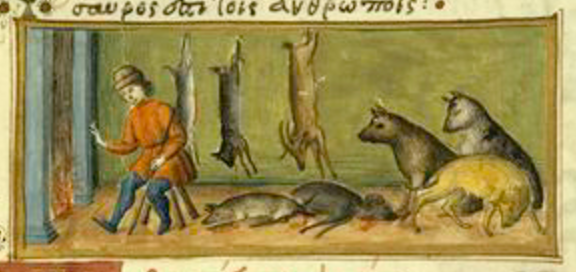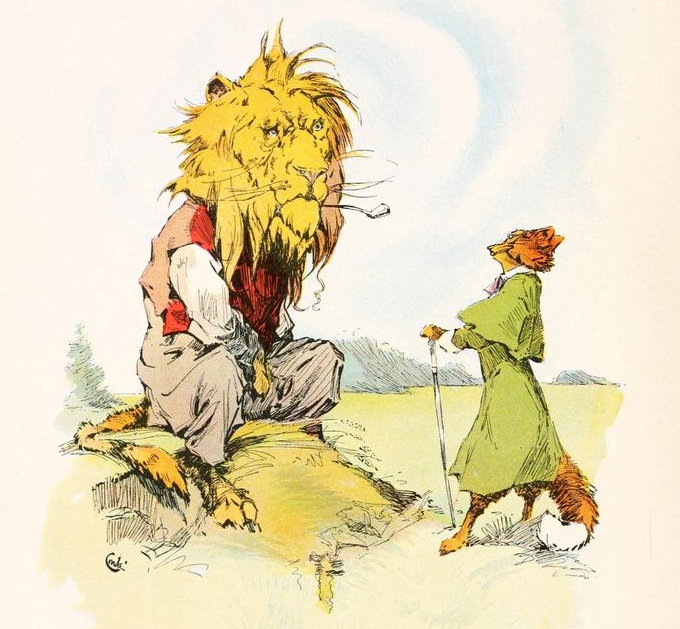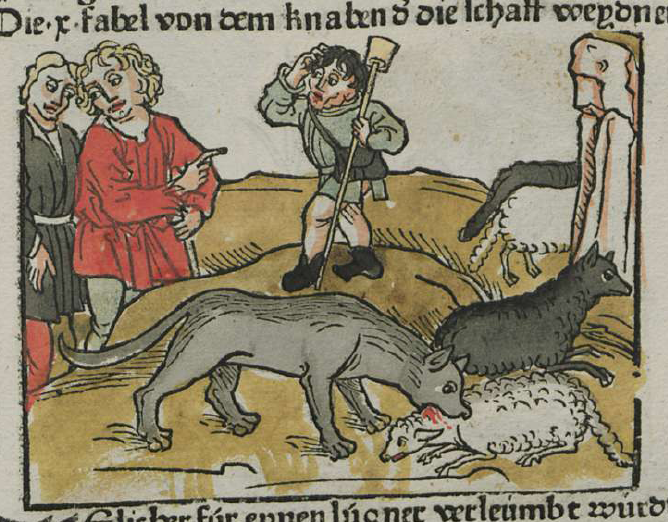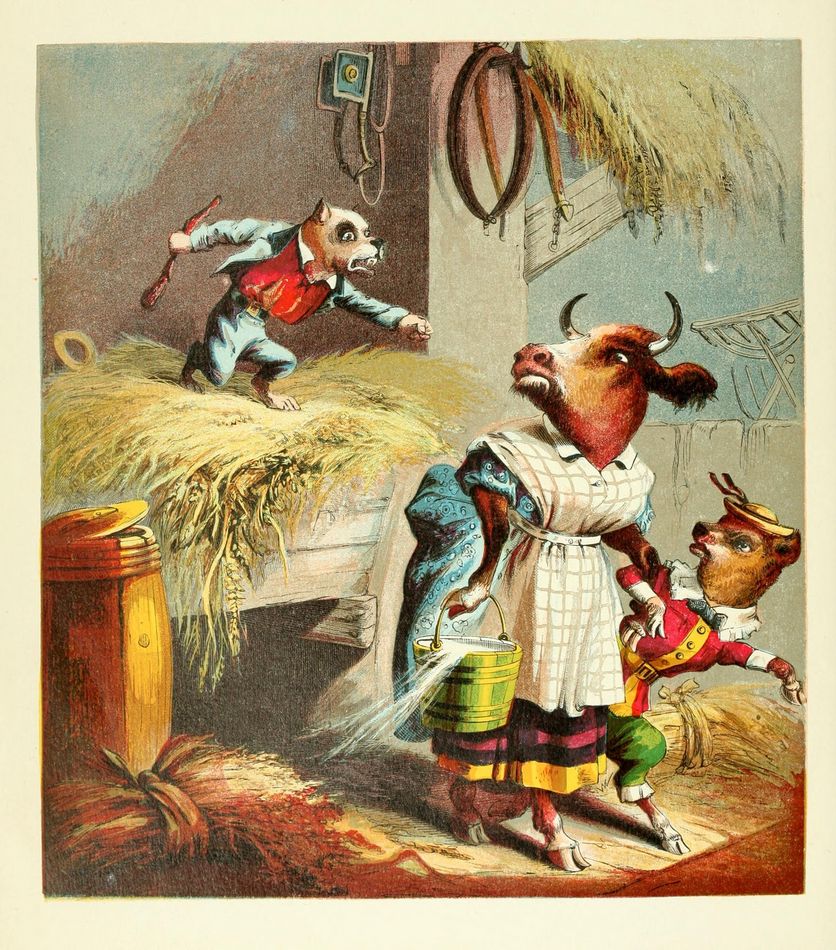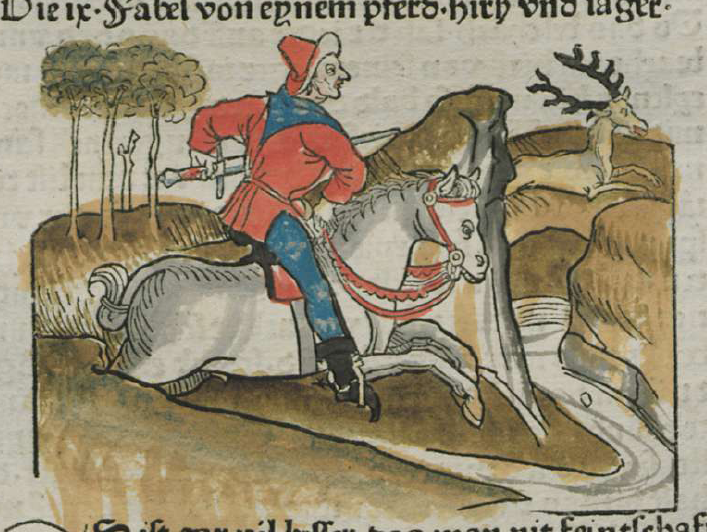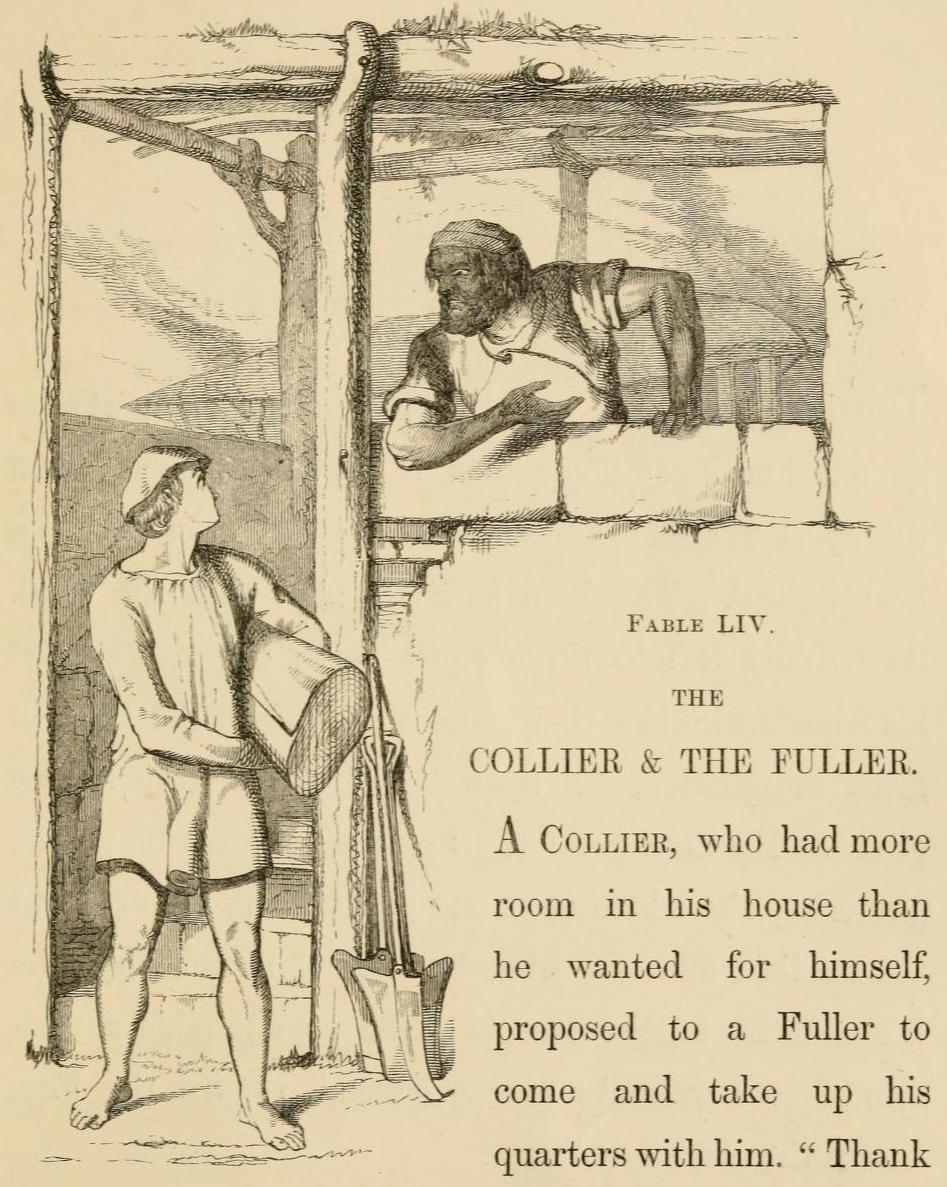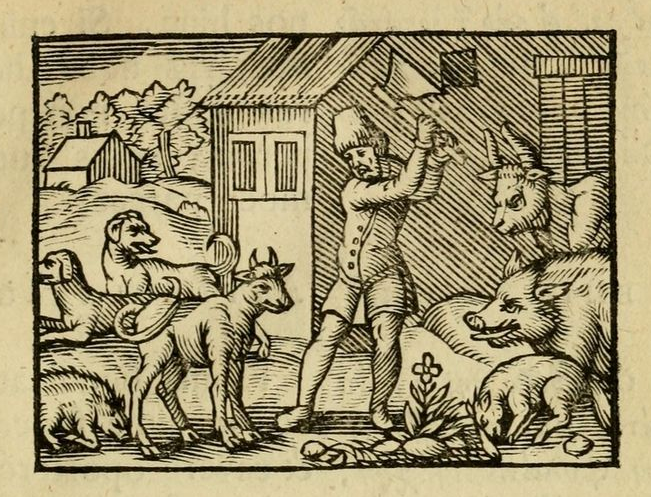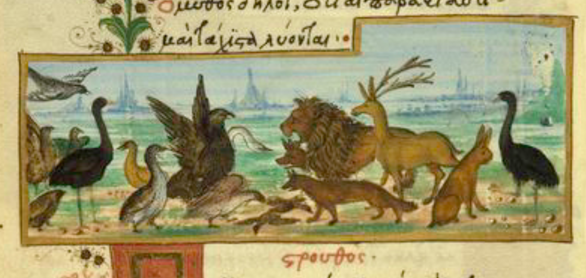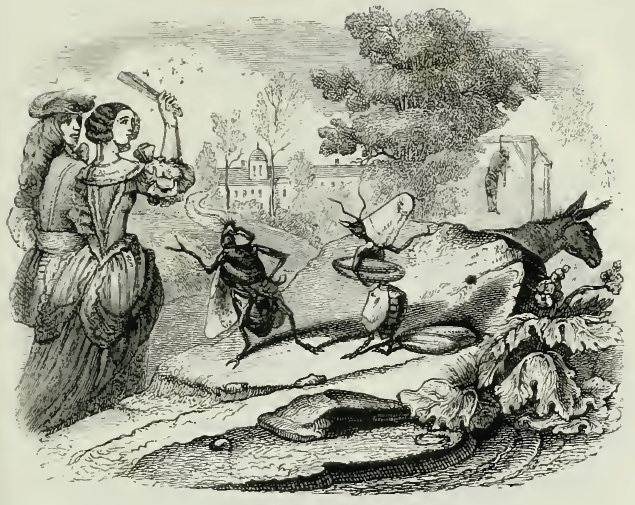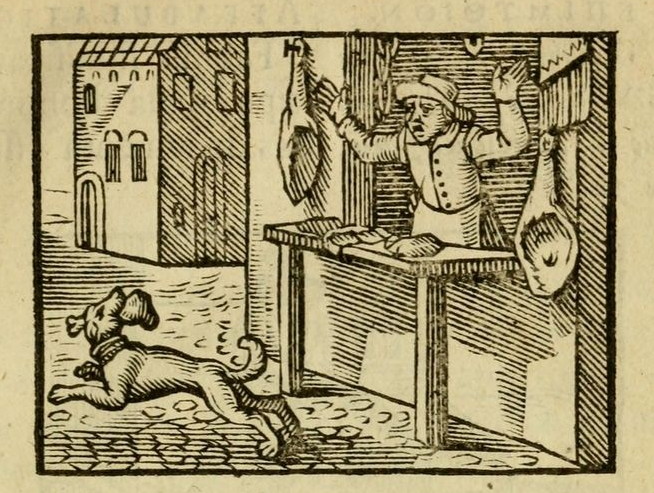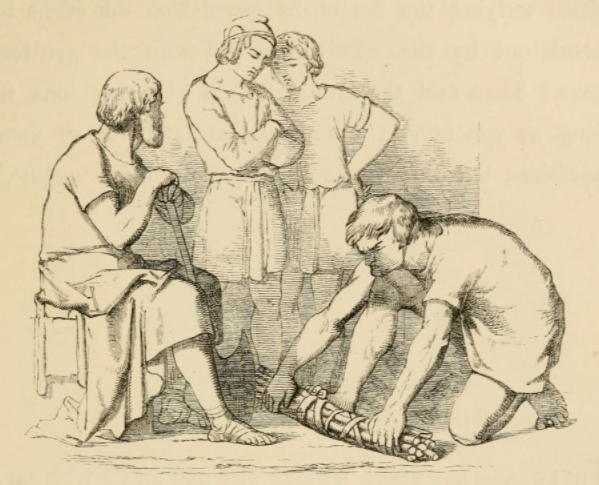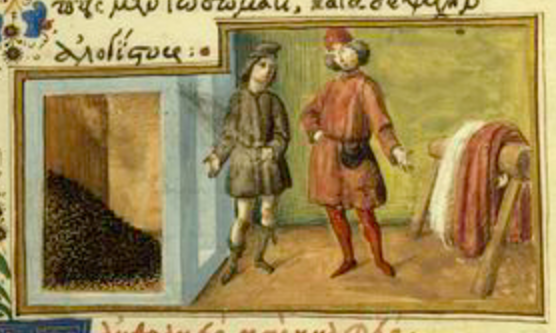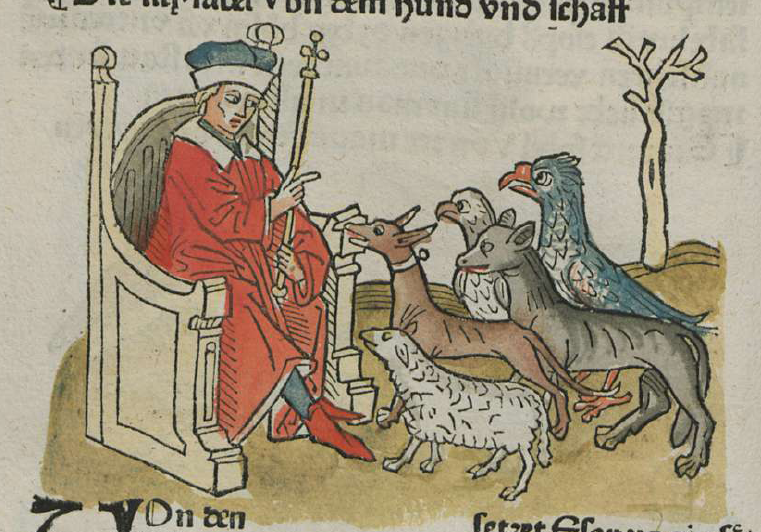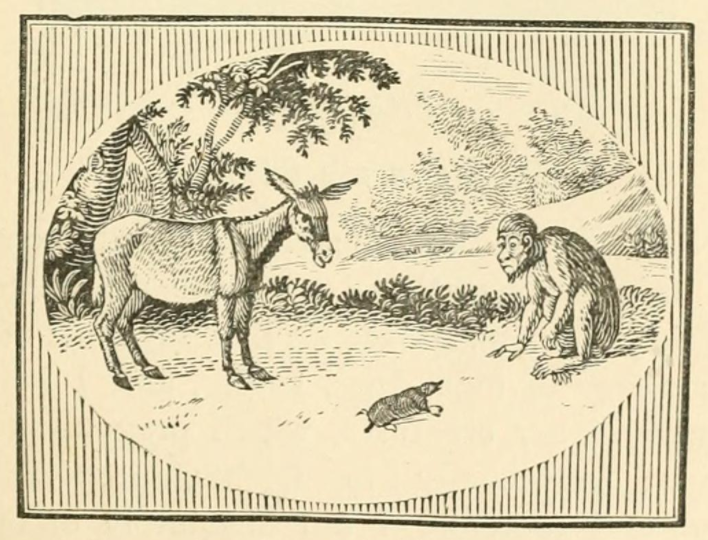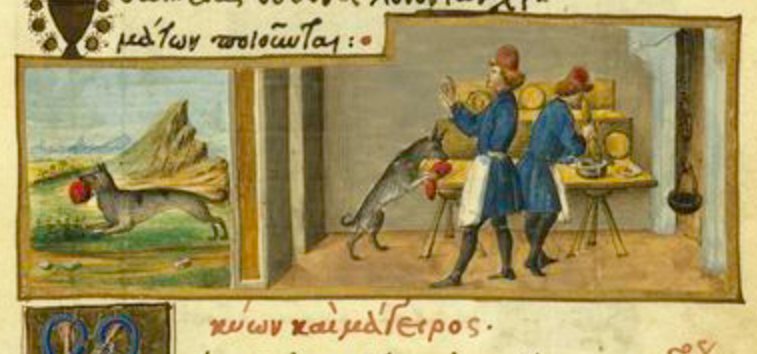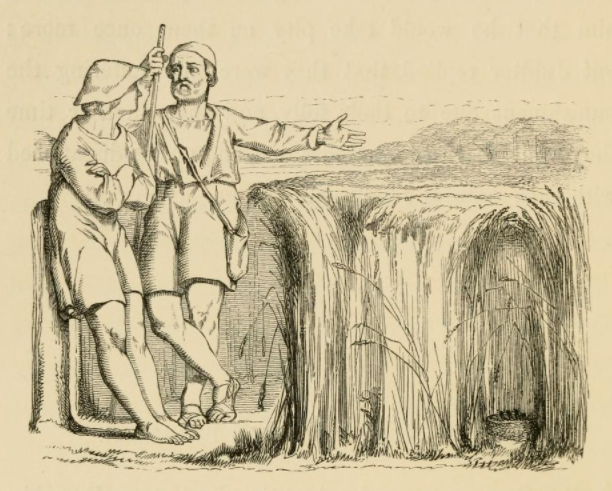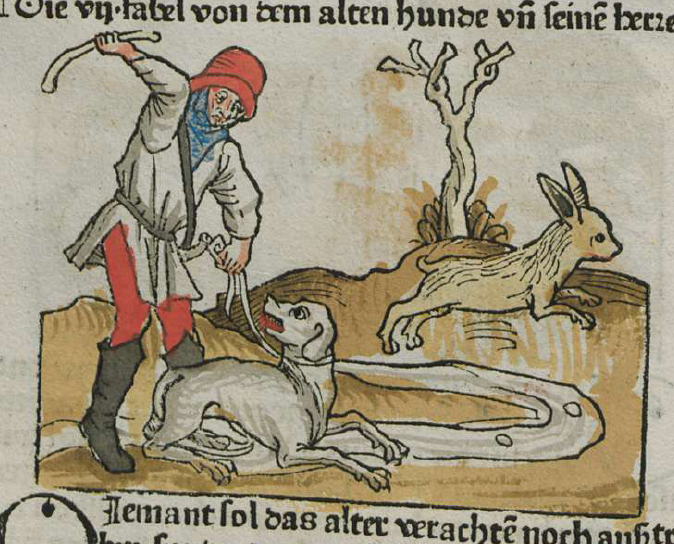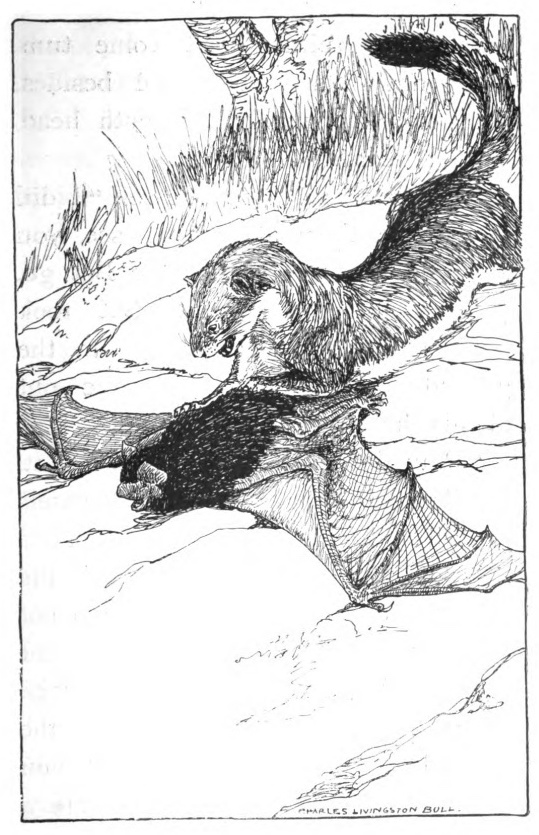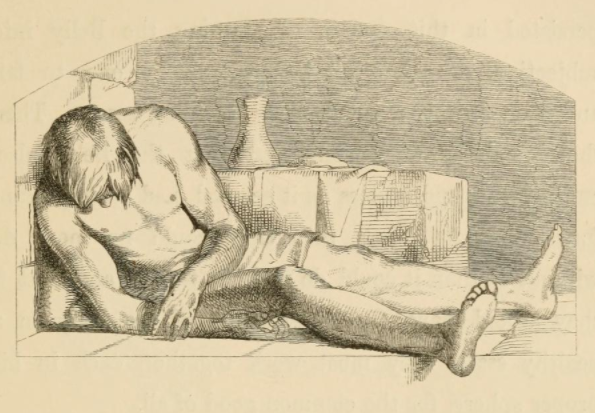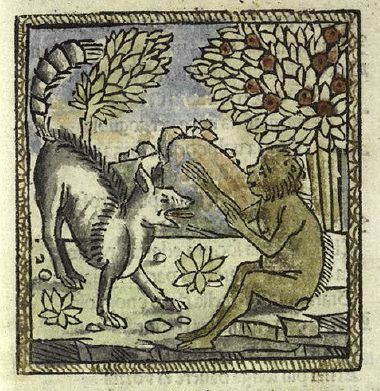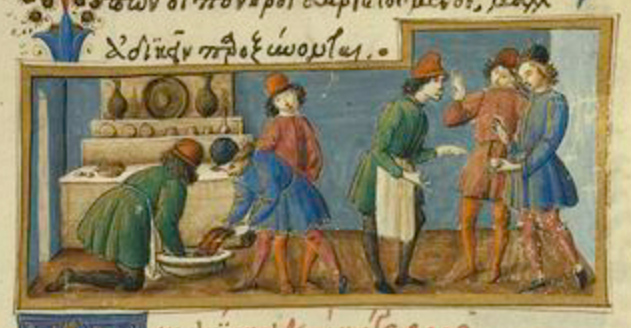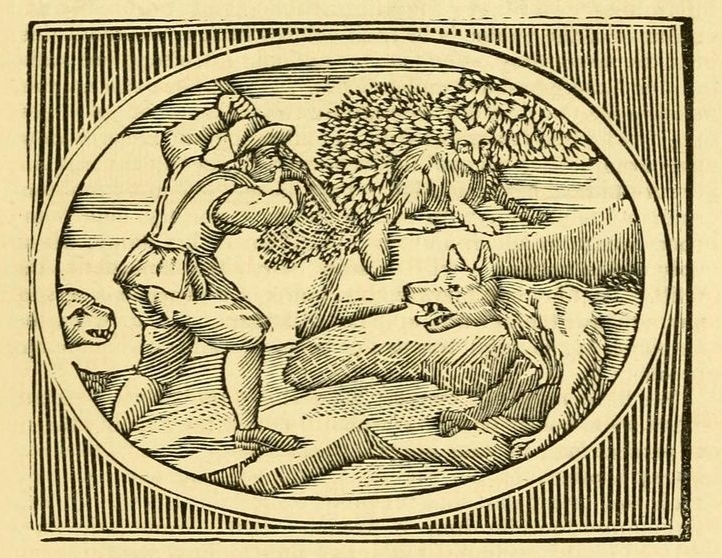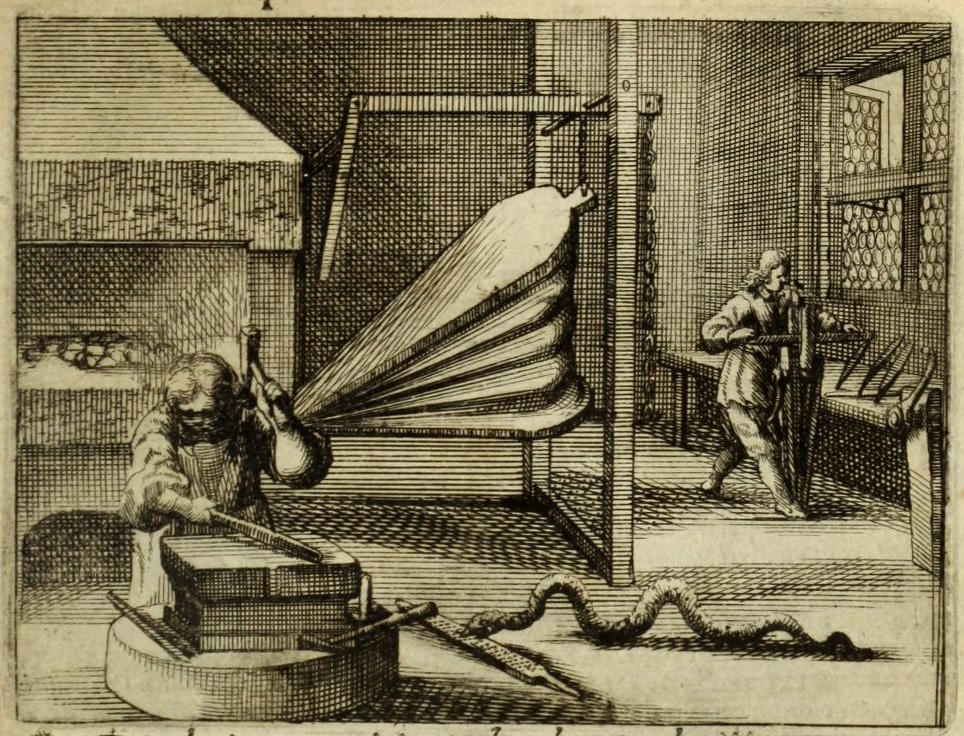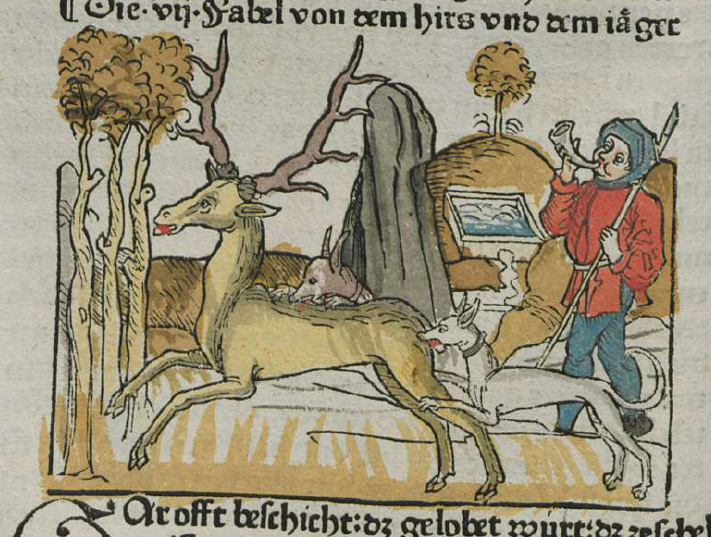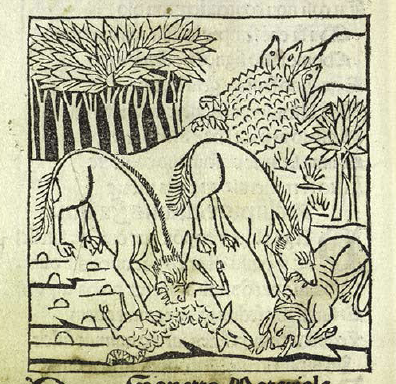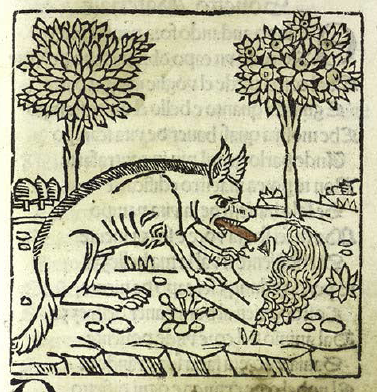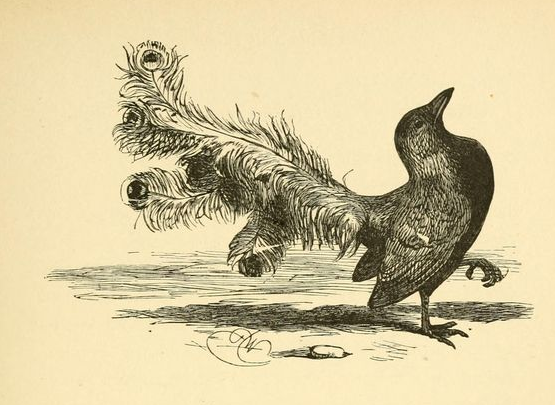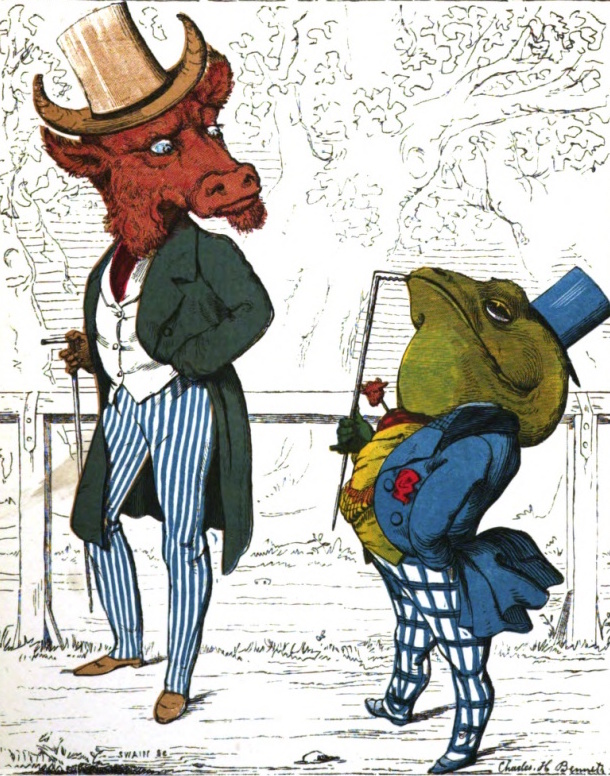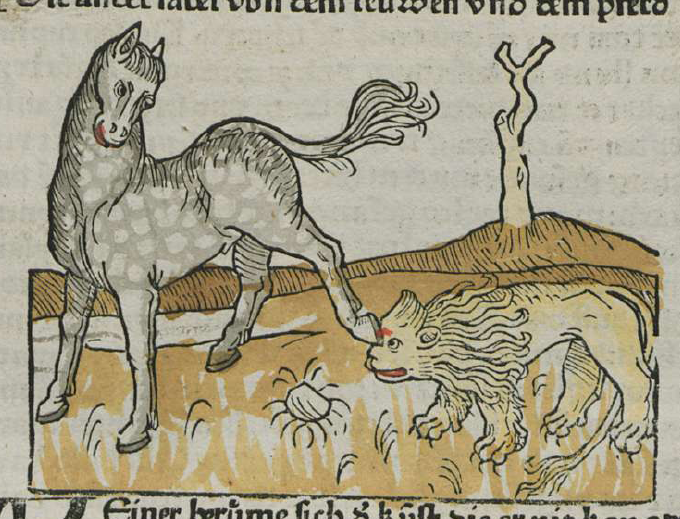Hercules and Plutus
Bidden to feast at each immortal's side,
The hero once with men, now deified,
Sweet converse with each God held Hercules,
Till he had come to Plutus, last of these.
To speak to him the hero's soul disdain'd,
Nor converse with him, like the rest, maintain'd.
Jove in amazement for an answer press'd,
Why he had ev'ry other God address'd,
But not one syllable to Plutus said.
Then Hercules to Jove this answer made,
"Why, because him, abhorr'd on earth by me,
I never saw but in rogues' company."

The Ox and the Ass
With a she-ass, best shift his means allow'd,
A tiller yoked his only ox, and plough'd.
When these he was preparing to unyoke,
Their work being over, thus the ass bespoke
The ox, "Who carries home the old man's gear?"
"The beast whose wont it is," said he, "'tis clear."
The Apple-tree, Pomegranate, and Bramble
For beauty's prize once strove the apple-tree
With the pomegranate. Each strove angrily.
The thorn-inflicting bramble, dwelling nigh,
Heard all the strife, and utter'd language high
To both. "Let us from rivalry desist
For beauty's prize, my friends." Bid that man list
This fable, who himself, tho' vastly less,
Would thrust mid nobler men, through foolishness.
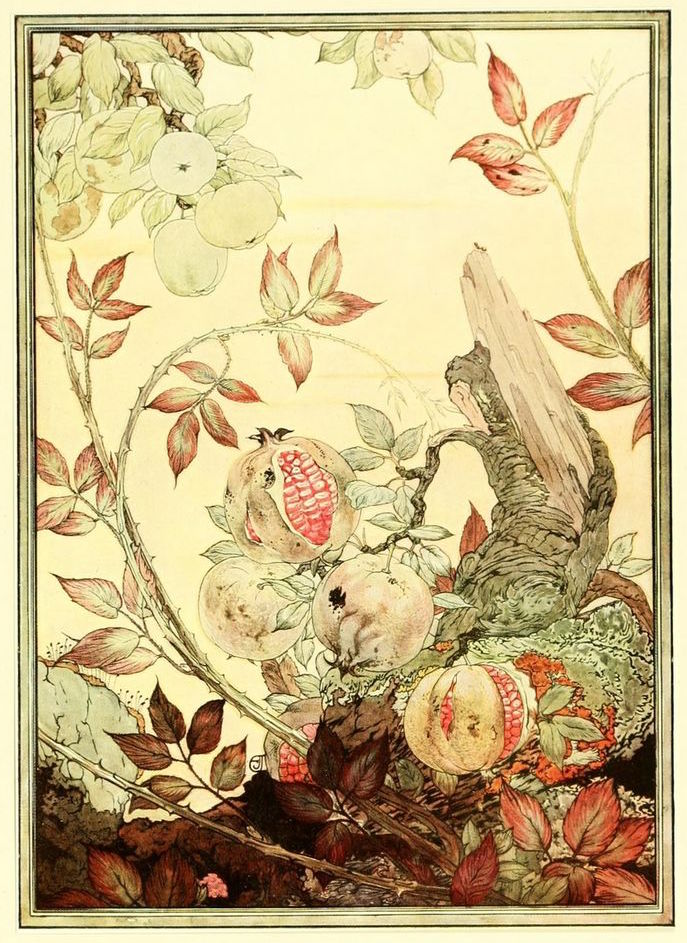
The Wolf and the Fox
A hapless fox fell in a wild wolf's way,
And pray'd him her old life to spare, not slay.
"I will, by Pan, I will," the wolf replied,
"If in thy next three words thou hast not lied."
"Well: first then," said she, "would we had not met!
Next, that a blind wolf had my path beset!
And, third and last," she added, "go for ever!
I trust from this day forth to meet thee never!"
The Crow and the Swan
A crow the swans their fair complexion grudged;
He would have been quite as white-skinn'd, he judged,
Did he but float on river, or on lake.
He left the hearths, where he was wont to take
His food, and to the swans' dank dwelling went.
To him no change of hue ablution lent,
But famine kill'd him, when no food he got.
Nature a change of dwelling alters not.
